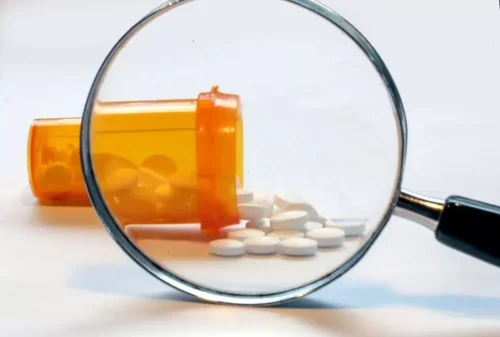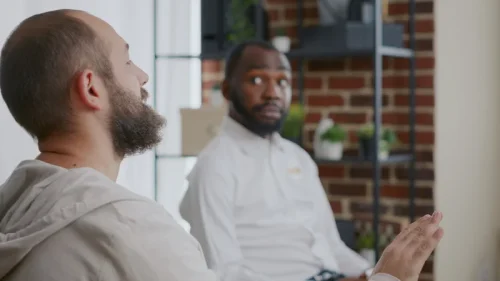Family Rehab Centers and Programs

In this role, Shannon developed, implemented, and maintained policies and procedures for the operation of the compliance programs and its related activities to prevent illegal, unethical, and improper conduct. She was also responsible for supervising the agency’s Consumer Directed Personal Assistant Services (CDPAS) program which serves over 350 individuals across 5 counties. In 2017, Shannon was promoted to her current role of Chief Operating Officer where she provides leadership to the agency’s 32+ programs and services over 7 locations in a 7-county region. Ruth Riddick is an NYCB Certified Addiction Recovery Coach (CARC) with a practice at Sobriety Together™, an authorized and experienced Recovery Coach Academy trainer (CART) and a designated Recovery Coach Professional (CCAR). Appointed in 2016, she serves as New York city-based ASAP-NYCB Community Outreach, supporting professional peer recovery development and certification throughout the prevention, treatment and recovery field. She also serves as consultant to the NYCB Ethics Committee and as ASAP-PWI administrator.
- For family units witnessing a loved one’s struggle with a substance use disorder, it can be a bewildering and painful experience.
- Recognizing the ripple effects of addiction on the entire family, it becomes evident that family involvement is not only beneficial for the individual but also for the collective well-being of the family unit.
- Talk to your health care provider about clinical trials, their benefits and risks, and whether one is right for you.
- It should also take into account the person’s age, the misused substance, and the specific mental disorder(s).
Sober Living for Families
It is often a long and bumpy path, and relapse is nearly inevitable—but that doesn’t spell the end of recovery. There are coping strategies to be learned and skills to outwit cravings, and practicing them not only tames the impulse to resume substance use but also gives people pride and a positive new identity that hastens recovery. Mountainside Treatment Center is a nationally acclaimed behavioral health network specializing in individualized alcohol and drug rehabilitation programs and services.
Clinical Research

There’s no judgment or blame here — a private therapy session is a safe place for stressed family members to talk openly and work through issues. Spending time making the meal together or cleaning up afterward can increase the benefits. Family members may not have the tools on their own to assist someone in active recovery, and they may not have the energy to help themselves. Medications like antidepressants or anti-anxiety may be prescribed to manage co-occurring conditions alongside addiction. Meanwhile, some medications like buprenorphine or naloxone can be used to manage cravings and withdrawal symptoms. Please click the Stay Connected button for more information on our in-person & virtual meetings.

When Your Loved One Is Resistant to Change
It’s also essential for families to understand the specific challenges their loved ones face. For instance, delving into RECO residences and how effective their recovery and comfort are can provide insights into the kinds of supportive living environments that https://ecosoberhouse.com/ can significantly benefit someone in long-term recovery. Transitioning from an intensive treatment setting to daily life requires a well-thought-out plan addressing both physical and emotional needs, emphasizing continuity in care and support systems.

Shawn is passionate about financial literacy and enjoys helping people who may have experienced life events such as divorce, bankruptcy, medical emergency, or job loss. In 2013, Shawn Moodie founded Moodie Bluez Consulting, a MWBE certified credit services practice focused on helping people repair, improve, or maximize their credit. Since its inception, Shawn and Moodie Bluez have helped hundreds of people not only maximize their credit scores, but also achieve their financial goals, including home ownership. Lisa Nichols, with ROCovery Fitness in upstate NY, is a peer advocate, CrossFit coach, nationally ranked Olympic weightlifter, mom, teacher, goofball, poet, and most importantly, a grateful human in recovery. Lieutenant Governor Hochul co-chairs the State’s Heroin and Opioid Task Force, an essential part of New York’s efforts to combat the epidemic through prevention and expanded access to treatment and recovery services.
Stephanie Campbell
We publish material that is researched, cited, edited and reviewed by licensed medical professionals. The information we provide is not intended to be a substitute for professional medical advice, diagnosis or treatment. It should not be used in place of the advice family support in addiction recovery of your physician or other qualified healthcare providers. Healthcare providers should use clinical interventions and modalities to heal symptoms of mood disorders and trauma through individual therapy, group therapy, family therapy, and medication management.
It is important to find a middle ground that acknowledges the individual’s autonomy while prioritizing their long-term well-being. Collaborating with addiction professionals and considering their expertise, along with open and honest communication within the family, can help in making an informed decision. Open communication and trust-building are key components of family support for adolescents. Establishing a safe and non-judgmental space where teenagers feel comfortable discussing their struggles and experiences is essential. Actively listening to their concerns, validating their emotions, and offering guidance without imposing control can foster a strong foundation of trust. Co-dependency and enabling behaviors, wherein family members inadvertently support and enable the addictive behavior, can hinder the recovery process.

In leaving addiction behind, most people have to restructure their everyday life, from what they think about and who they spend time with and where, to how they use their time, to developing and pursuing new goals. The shifts in thinking and behavior are critical because they lay the groundwork for changes in brain circuity that gradually help restore self-control and restore the capacity to respond to normal rewards. Guilt refers to feels of responsibility or remorse for actions that negatively affect others; shame relates to deeply painful feelings of self-unworthiness, reflecting the belief that one is inherently flawed in some way.
The Consequences of Alcoholism for Friends and Family
Use these free digital, outreach materials in your community and on social media to spread the word about mental health. The key role of a family therapist is to allow every member of the family an opportunity to share their feelings, thoughts, and concerns about the current situation. The process becomes much safer when someone’s present to mediate heated interplay and ensure everyone’s voice is heard in equal measure. Also, therapists neutralize language and help to articulate emotions that are difficult to describe. Therapists manage the energy in the room so all members feel safe and free to express themselves.
- Families often give everything of themselves to help get a loved one into treatment.
- NIMH supports research at universities, medical centers, and other institutions via grants, contracts, and cooperative agreements.
- Advocacy is equally important, serving as a means to combat stigma, raise awareness, and potentially influence policy changes that support recovery efforts.
- Colleen DiLello is employed as a CRPA-P at Central Nassau Guidance with the Mobile Recovery Unit since January 2020.
